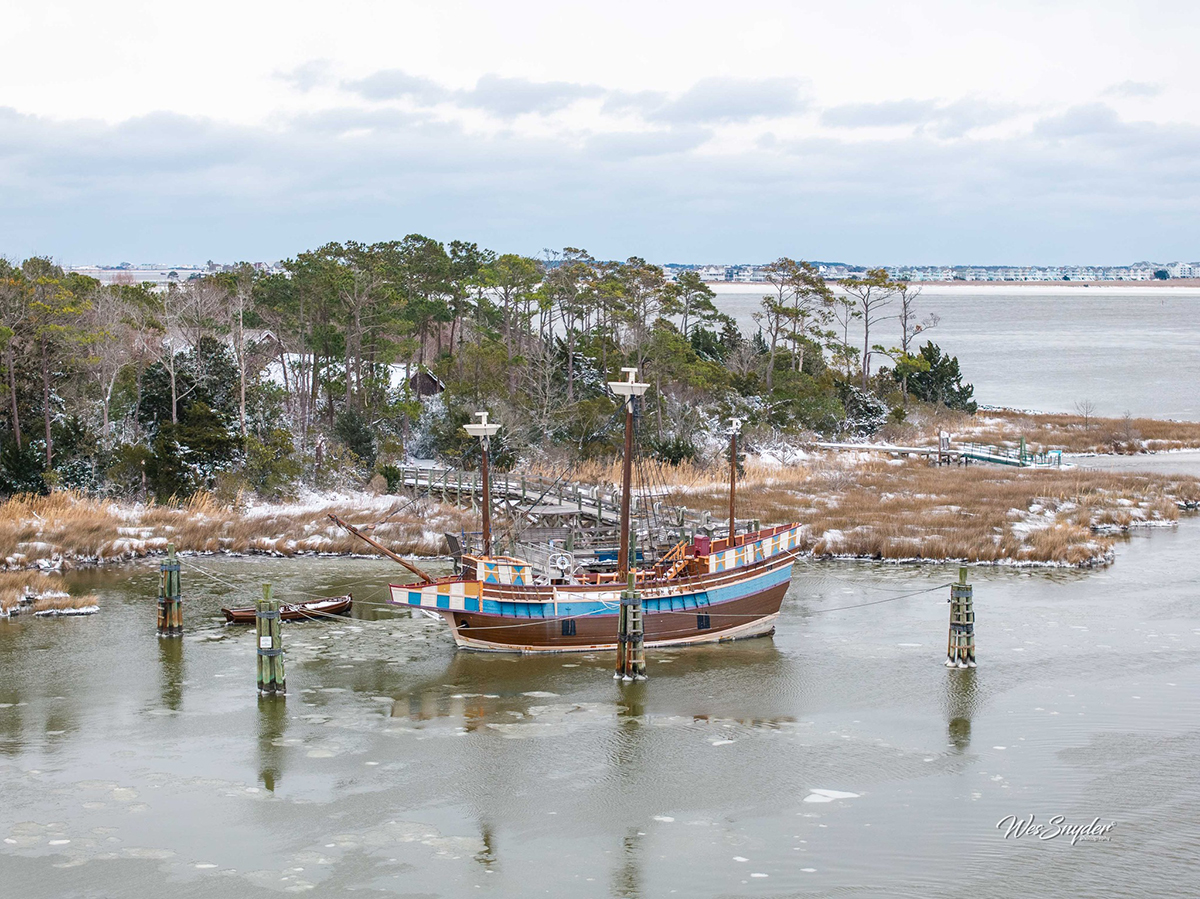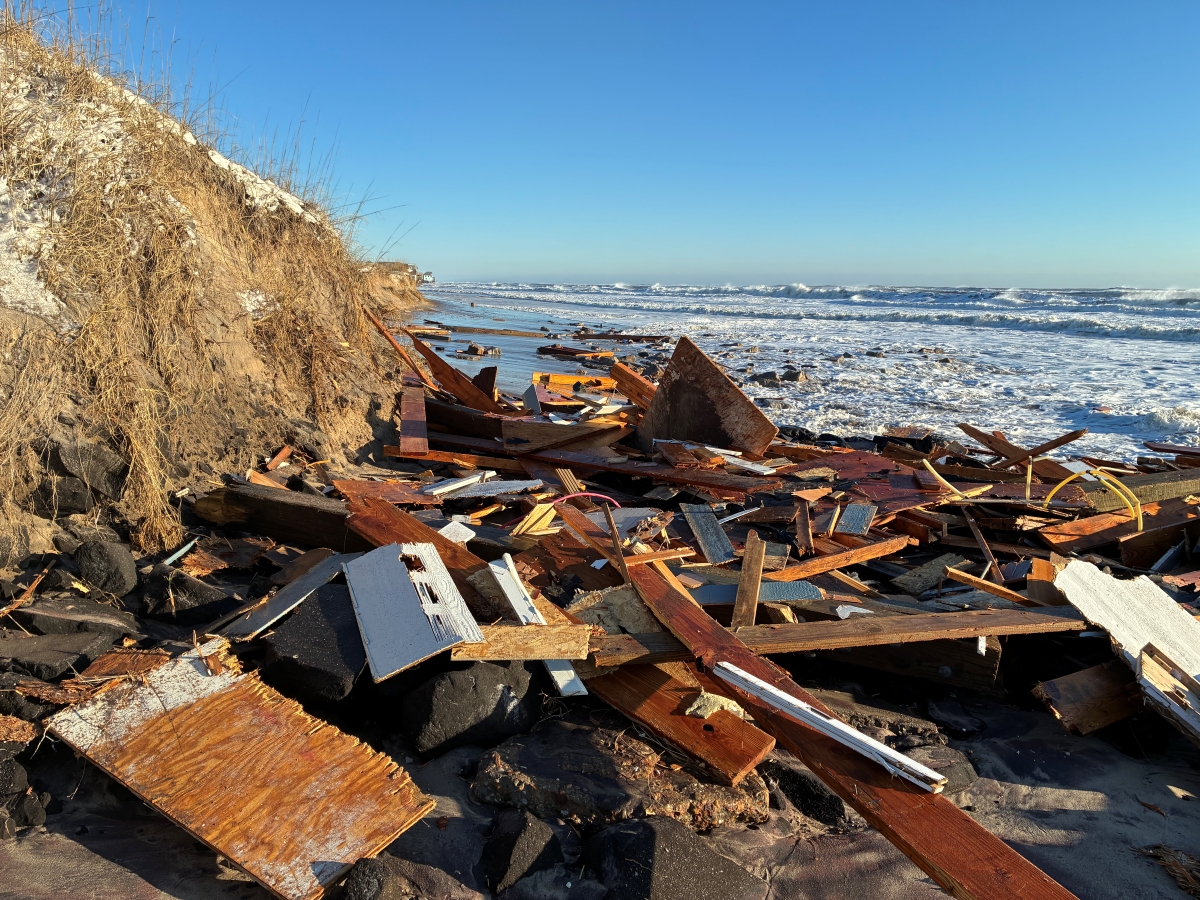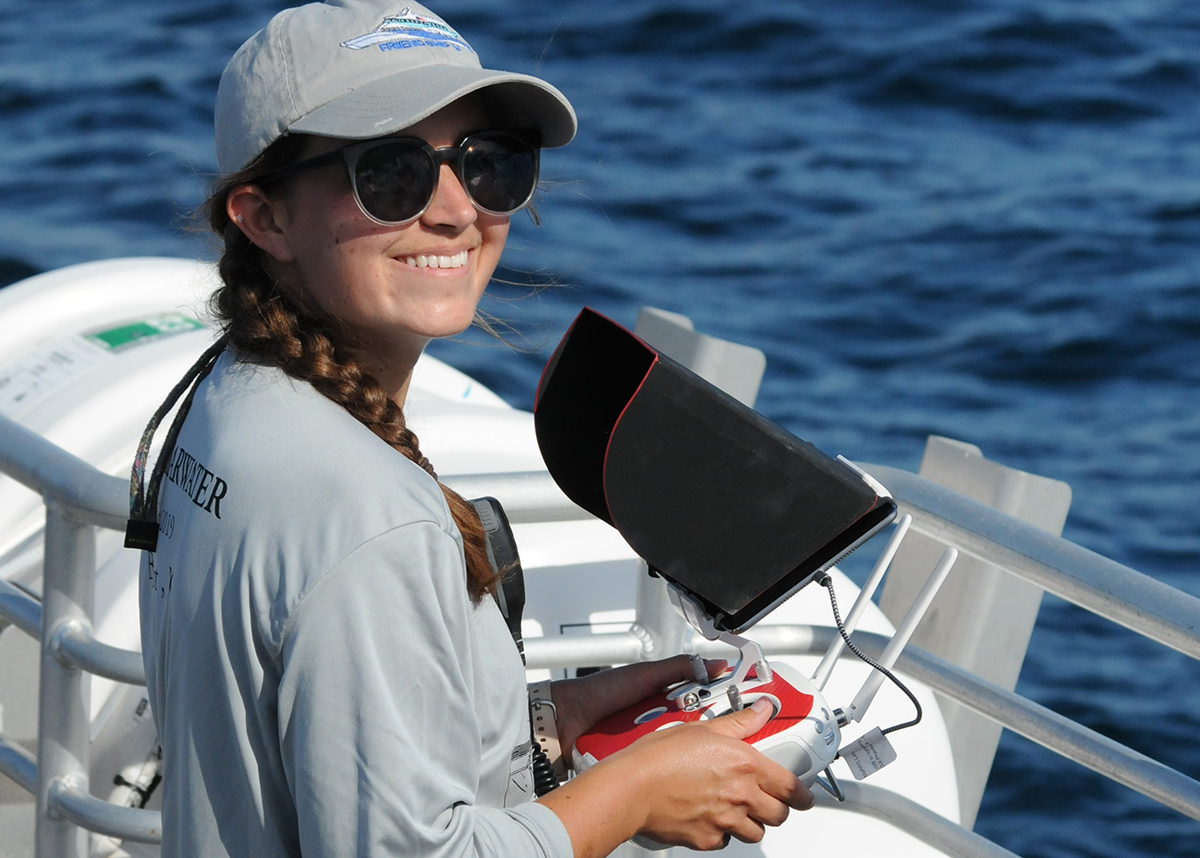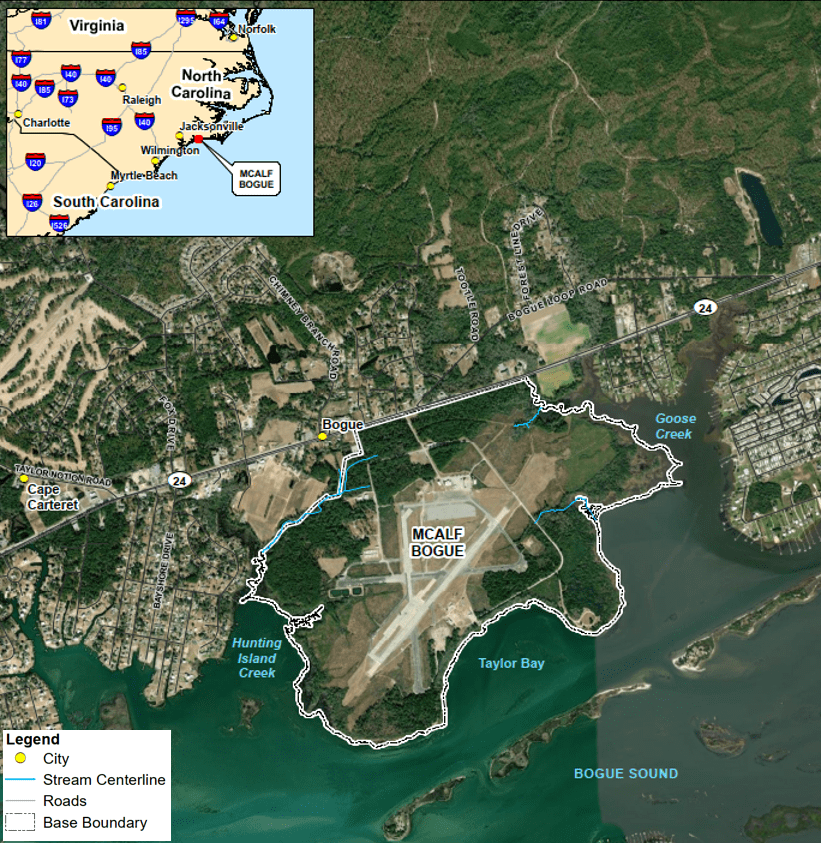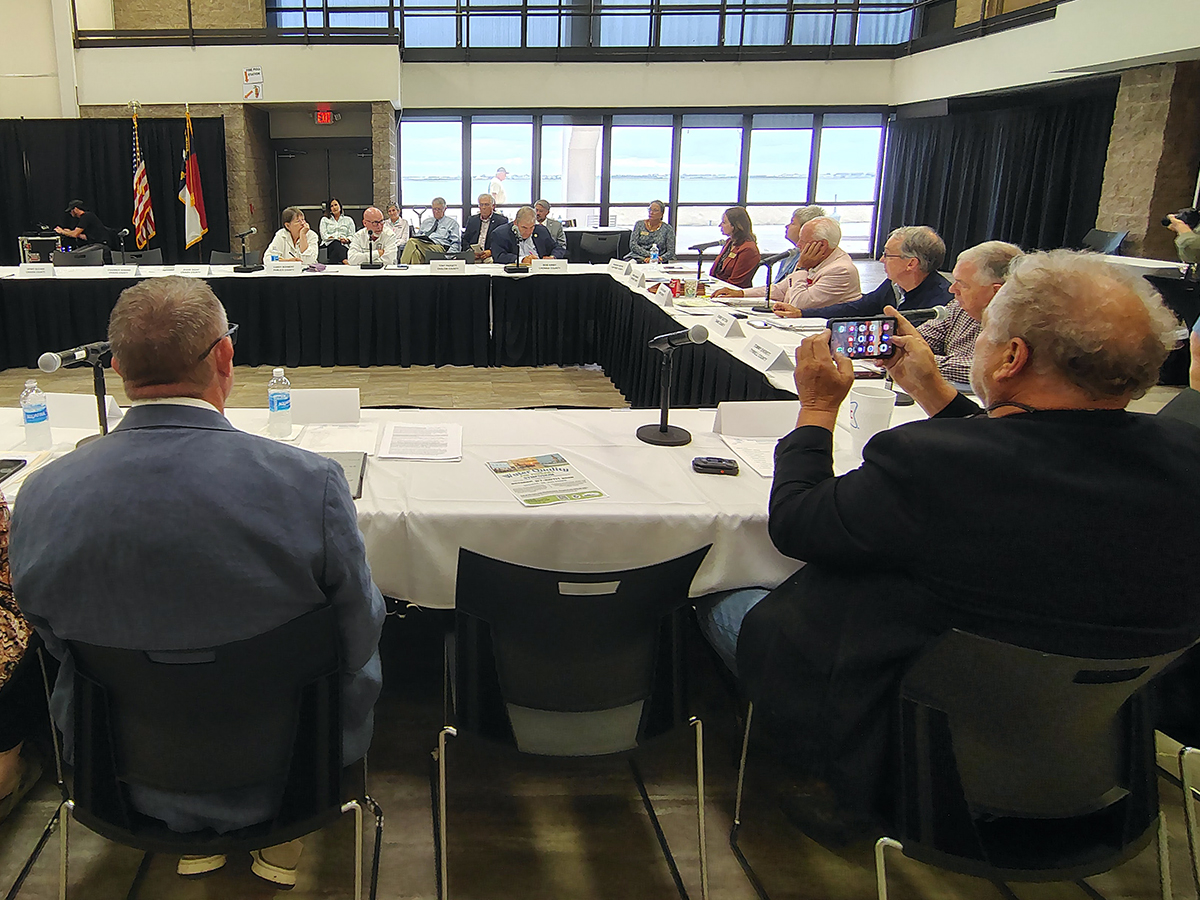
A discussion about a proposal to transfer the Division of Marine Fisheries from the Department of Environmental Quality to the state agriculture department looms large on the list of priorities for a newly formed alliance created to support North Carolina’s commercial fishing industry.
During the North Carolina Coastal Counties Fisheries Coalition’s second meeting Sept. 16 at the Crystal Coast Civic Center in Morehead City, Dare County Board of Commissioners Chair Bob Woodard explained that the proposal was floated after asking commercial fishermen about their concerns.
Supporter Spotlight
Among those issues were catch limits, water quality, educating the rest of the state on coastal issues, predation management, and the idea that Woodard called “a big one.”
“It’s a biggie, is moving the director of Marine Fisheries to the Department of Agriculture,” Woodard said.
The Division of Marine Fisheries provides staff support to the state Marine Fisheries Commission, which is a nine-member board appointed by the governor that manages fisheries in coastal and joint waters.
Woodard initiated the alliance in a July 3 letter to other coastal counties after a state Senate committee amended a House bill that would “prohibit the use of trawl nets to take shrimp in coastal fishing waters or the Atlantic Ocean within one-half mile of the shoreline.”
House Bill 442 was first introduced in March with the stated intention of opening fishing for summer flounder and red snapper, but Senate added the trawl ban language before approving the measure. Despite a handful of “noes” from a few coastal Republican senators and a well-attended protest organized by commercial fishing interests, the amended bill was approved June 19 in a nearly unanimous vote and sent back to the House to consider. House leaders announced on June 25 that the House would not take up the bill.
Supporter Spotlight
The coalition held its first meeting Aug. 5, also in Morehead City, and plans are in motion for the next meeting to be Nov. 5 at the same location.
“I think we’re making some really, really positive headway with respect to this coalition,” Woodard said as he called the meeting to order.
Woodard also explained that the Food and Drug Administration has warned that the public should avoid eating imported shrimp potentially contaminated with radioactive material that may have been sold at Walmart in 13 states.
“This is exactly what we’re talking about, folks. Folks sitting around this table, we want to eat local shrimp, and we want to eat it out of clean waters. Americans are being warned not to eat or sell or serve certain Great Value, raw, frozen shrimp sold at Walmart after toxic levels of radioactive materials were detected in just one sample,” said Woodward, noting that the FDA states in its press release that the suspect shrimp had been imported from Indonesia.
“This is this is what we’re dealing with,” Woodard reiterated, adding that nothing is more important than protecting the livelihood of commercial fishermen and local seafood.
As part of that focus, the coalition members has since the first meeting been talking to those in the commercial fishing industry about their concerns. The coalition was tasked with breaking down the list of 10 issues into four priorities.
The priorities to which they agreed to and ranked in order of importance are education, fisheries limits and water quality, legislative items, and predation management.
Regarding the top priority, education, the goal is to inform the rest of the state, local governments, the legislature and consumers about the commercial fishing industry.
Currituck County Commissioner Janet Rose pointed out that consumers are statewide but don’t have a seat at the table. “I think we really need to play into the consumers. I think that’s important.”
For priority No. 2, water quality decline and limits and rules for crabbing, shrimp and flounder, Pasquotank County Commission Chairman Lloyd Griffin said the “biggest opponent right now is the five highways that come to eastern North Carolina.”
“We’re fighting stormwater runoff. We’re fighting the closures because of the stormwater runoff. We have more people that want to live on the coast because of the quality of life. So our roads are our issue,” Griffin said. “You really want to be conscious of is what is happening with our closures because those closures do have an impact.”
The suggestion to move the Division of Marine Fisheries to the North Carolina Department of Agriculture and Consumer Services, Marine Fisheries Commission data sharing and transparency, and testing for restaurants to back up local seafood claims, all fall under the third priority: legislative items.
Carteret County Commissioner Chris Chadwick spoke up in support of the idea of the division being under the Department of Agriculture.
“Shrimpermen, fishermen and floundermen and all that, they are food producers. The only difference — they don’t own the land. They’re out there in the public water. But I think it would be a much more friendly atmosphere over there. Maybe less political. Hopefully less political,” Chadwick said.
Pricey Harrison, D-Guilford, was in attendance, and she told the coalition she understands fish issues and the environmental constraints.
As a representative, Harrison said “it’s incumbent on us to educate our colleagues and these folks back here have done a really excellent job of that,” adding that it has been interesting to counter the bad facts that have been floating around the legislature.
Marine Fisheries’ ‘early history’
During the meeting, two scientists who have retired from the North Carolina Department of Marine Fisheries were invited to speak about their time as public servants.
Cornell Purvis, who acted as director for Marine Fisheries from 1978 to 1992, said that “in the last 40 years, Marine Fisheries has been the red-headed stepchild of state government, but it didn’t start out that way. It started out with something that needs to be celebrated. I’m here today to lift the truth and to celebrate the early history of Marine Fisheries.”
He said that, going back 50 years, it “was all old school,” while under the leadership of the division’s third director, the late Ed McCoy. Purvis called him “the brainchild behind the focus on the science and the focus of connection with the fishermen.”
The director taught his staff that they were public servants who served the fishermen in the state. “He told us experience is the best teacher. It’s always the best teacher. These fishermen already know it. We have to learn what they already know and put it in scientific terms.”
Jess Hawkins, previously the chief of fisheries management for the division, worked in state government for 30 years, with much of that time in fisheries regulation. His role with the division was to coordinate rulemaking for the Marine Fisheries Commission.
So, how did the state get to a point where a bill proposing a flounder season was transformed into banning shrimp trawling in estuarine and a coastal waters, he said. “How does that happen in our state?”
Hawkins said the trawl amendment “did not spontaneously develop. It was a chronic process of what I believe is failed governance, and education is a key component of that.”
He added that his comments were intended to help, not disparage, before reciting a brief history of the last few decades of fisheries management.
The Fisheries Reform Act of 1997, which was passed with bipartisan support, “set the foundation for fisheries management in North Carolina and it was an epiphany for our state,” Hawkins said.
The act was meant to transform how the state manages its fish, and set the structure for the Marine Fisheries Commission, established the science-based management system, and required fisheries management plans for all commercially and recreationally important fisheries. The act also provided an avenue for robust public engagement through advisory committees.
When Hawkins retired in 2006, he was managing 25 advisory committees, and now there are seven, prompting his concerns with the public input or stakeholder process.
“My observation is — and following fisheries policy in our state since I’ve retired — is the last 15 years or so, the stakeholder input process of the Fishery Reform Act has been corrupted,” Hawkins said.
The process to build a fisheries management plan begins in a committee, but “right now your fishery management plan committee only meets once,” which used to meet consistently, Hawkins said, the same as the standing and regional committees.
The North Carolina General Assembly requires the Marine Fisheries Commission chair to establish a committee that helps develop the management plan. “The executive branch has interpreted that, that they only need to meet once. During which time, they only share ideas, then staff “assimilate the ideas and go off and work on the plan,” Hawkins said. The committee never gets to review the draft plan before it goes before the commission. “So, that process has been corrupted.”
The habitat and water quality advisory committee used to meet monthly, but in the years since Hawkins retired, he said that the committee has never met. And the finfish committee should have been able to review the flounder fishery management plan, but during some years, it never had the opportunity.
Hawkins also pointed to what he called a lack of dialogue between the public and the fisheries commission, particularly limiting, he said, is the three-minute time limit per person during the public comment portions of commission meetings.
“The silence about seafood consumers in our state when we manage our resources is deafening. There’s very little regard to that, very little discussion of that,” Hawkins said.
There is advocacy for consuming domestic seafood, and it is known that the country has a well-managed seafood system management system that inspects the product caught in the United States, but “We only inspect 1-2% of our foreign seafood, yet we import 85%. We import 90% of our shrimp and yet we have a bill that’s introduced to even stop the shrimp harvest based on no scientific reason of shrimp populations being harmed.”
Hawkins gave the coalition a list of his proposed legislative changes that he said he had also sent to legislators over the years. None have been approved.
“North Carolina cannot afford to continue to rely on the leadership that changes with the gubernatorial office every four years to manage our seafoods. It can’t do that. There needs to be changes,” he said.



